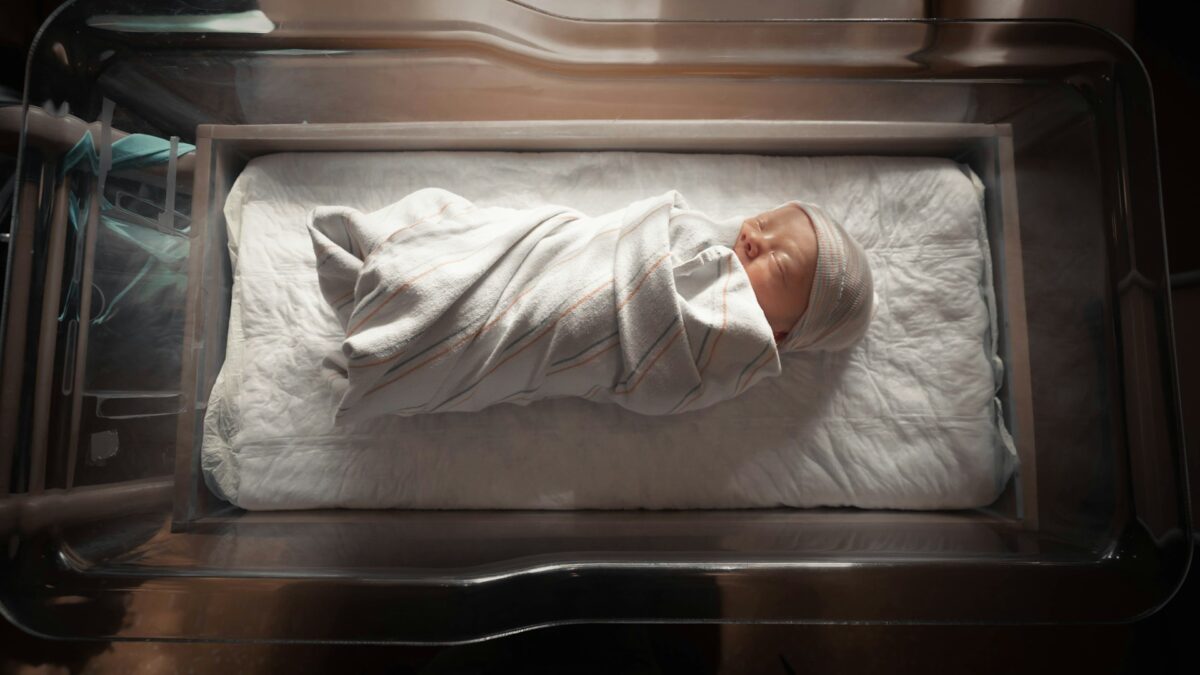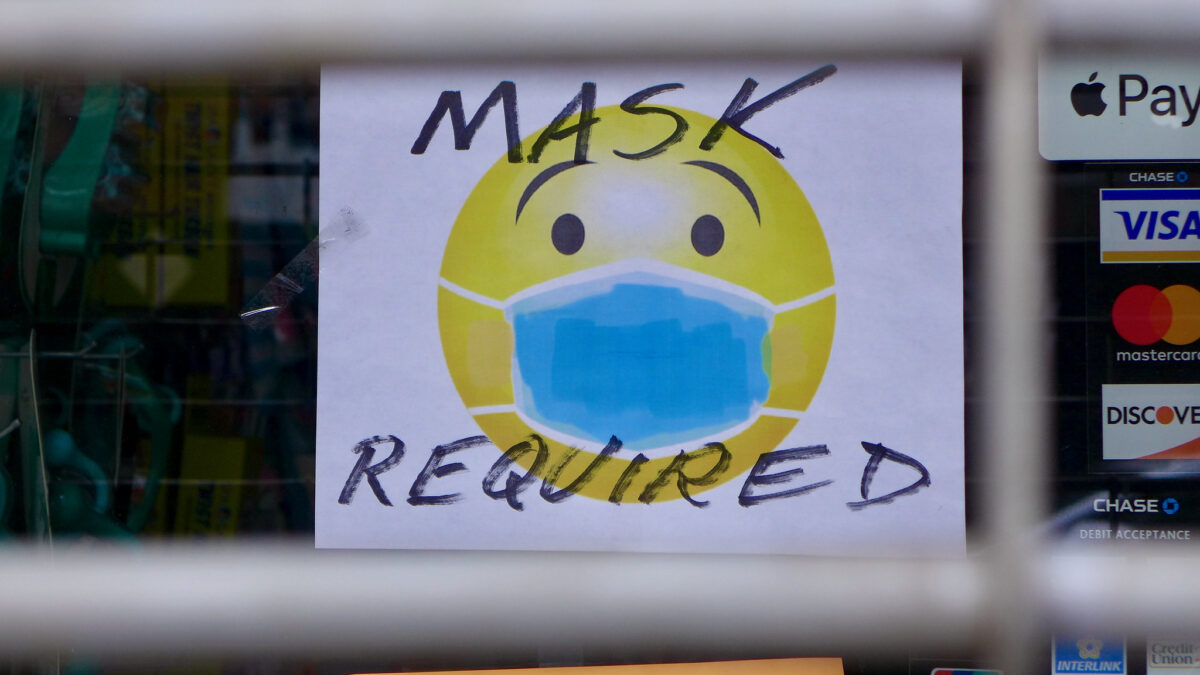Thanks to assisted reproductive technology and surrogacy, even people who don’t want or deserve children can buy their way to parenthood. Such was the case with one couple who, after nearly nine months of demanding their surrogate Heathyr abort, left a hospital in 2020 with a baby boy in their arms.
Single mother Heathyr went into the surrogacy application and matching process, hoping she would “be on the same page” with the couple about ending the life of the unborn child.
“I personally do not believe in termination unless there is something that will hurt the quality of life of the child,” she explained in a series of viral TikTok videos. “I’m probably saying that wrong, but I don’t think it’s fair to bring a child into the world if they have severe brain damage and they’re probably going to die a few days after birth or something of that instance.”
Her agency ultimately paired her with a self-proclaimed Catholic couple who claimed they did not believe in abortion. During legal negotiations, Heathyr’s agency took note of both parties’ convictions about ending life in the womb and added them to the surrogacy contract.
Heathyr would later learn that even the most detailed surrogacy contracts don’t protect women and the child they are carrying from emotional and physical harm.
Terms And Conditions
The couple openly desired a set of boy-girl twins, which they tried to get by placing two handpicked embryos, no doubt taking advantage of the normalized reproductive technologies trend of choosing a child’s sex, in Heathyr in December 2019. That transfer failed after both the female and male embryos did not attach to Heathyr’s uterus.
Undeterred by the results of their first attempted implantation, the couple and Heathyr proceeded with another double embryo transfer in February 2020. Heathyr became pregnant, but only one of the embryos stuck.
Up until the pregnancy, Heathyr said her relationship with the intended parents was friendly. The wife texted, called, and FaceTimed daily- happy to share in their excitement about fulfilling their dream of twins. Once Heathyr joyfully delivered the news that, after 10 years of infertility, the couple would soon take home one baby, both husband and wife became distant.
“This really confused me. ‘What do you mean? It’s a baby. It’s a healthy baby. I’m not understanding,’” Heathyr recalled.
The couple, in denial that their plans for twins were dashed, demanded Heathyr get another ultrasound to confirm there was only one sac.
Heathyr recalled thinking the appointment went well after she heard the baby’s heartbeat. Shortly after that checkup, however, Heathyr received a call from her surrogacy agency about the couple that hired her to carry their child.
Heathyr assumed the worst happened to the parents. Instead, she was told the couple who previously agreed with her stance on abortion wanted her to end the life of their baby. The couple blamed their demands for Heathyr to take a risky chemical abortion pill on panic about the looming Covid-19 pandemic.
“The gist of it was, ‘Heathyr, we are so sorry, but you know, this virus is getting pretty bad, and we just think it would be best for you to have a termination at this time. And we will try again when the virus is over with, and we would be happy to work with you again,’” Heathyr said.
The news left Heathyr “bawling” over the possibility of aborting a perfectly healthy child.
“It’s their baby, and I don’t want to make them have a baby they don’t want, but also, they know my views on termination, and I thought they didn’t believe in termination,” Heathyr said.
During a Zoom call with the intended parents, Heathyr’s first communication with them since receiving the news, the father again pushed abortion.
“He is just yelling at me that I’m going to have a termination. I’m doing it. It’s their baby, it’s not my decision. And if I don’t, they are suing me, ” Heathyr said, noting the exchange left her, once again, in tears.
She immediately called her lawyer to determine if her agreement to exchange her womb for money meant she had to end a child’s life. Legal counsel confirmed the surrogacy contract did not allow for a forced abortion unless it met Heathyr’s previously disclosed standards. They also said the couple could not sue her for continuing the pregnancy.
Yet, the couple continued harassing Heathyr’s OBGYN office daily with mail and emails about her getting an abortion. The couple and their lawyer also tried to coerce Heathyr into signing an addendum that said if she contracted Covid, she would be required to end the child’s life. She did not sign but agreed to test on a regular basis.
As the pregnancy progressed, Heathyr tried to involve the parents by calling them into doctor’s appointments and offering to send ultrasound pictures. The couple routinely ignored her, told no one they were expecting a baby, and kept up the abortion pressure through 38 weeks of gestation.
“Still to this day, I have all of my ultrasound pictures from that pregnancy because they didn’t want any of them,” Heathyr said.
More Harm Than Good
Legal damages may not have been possible, but turning babymaking and gestation into a transaction means even the most legally sound surrogacy contracts like Heathyr’s can result in harm to the baby and woman carrying him.
The baby buyers’ open desire to rid themselves of the responsibility of a child with their DNA caused Heathyr significant emotional stress. She tried telling herself that “this baby is so loved and he was wanted for so long,” but nothing could shake her fears about the child’s future.
To be eligible for surrogacy, Heathyr had to swear that she did not want to keep the baby she was carrying even though she and the child would suffer for it. The parents’ aggressive determination to end the child’s life, however, left her second-guessing about leaving a baby behind.
“Obviously, if they really didn’t want him, I would have tried to get him because I don’t want him to go into like foster care. It never ended up coming to that, but like I was so worried every day, stressed, like crying myself to sleep. This poor baby,” Heathyr explained. “So much work, medication, and money went into this baby, and they still are asking me if I’m going to terminate if I test positive for Covid.”
Babies and the women who carry them form a unique and undeniable physical and emotional bond during gestation. Gestation promotes a connection that studies show leads mothers to positively interact with their children post-birth. Unborn babies and their birth moms also exchange cells that can stay in their bodies for decades.
Surrogacy, the commodification of women through the fertility industry, deliberately severs those important and life-changing bonds by creating a physical and emotional distance between the baby and the woman who will raise him. That distance is only exacerbated by couples like Heathyr’s customers who take a hands-off approach during the entire pregnancy.
Despite originally signaling a desire to be in the delivery room to latch onto key bonding time with their new baby, the couple didn’t arrive at Heathyr’s hospital room until after their son’s “traumatizing” birth. Heathyr remembered silently begging the couple to “love him and be deserving parents of this precious baby that’s like so healthy and perfect.”
If these parents were adopting this child, their refusal to participate in the pregnancy and birth would certainly be flagged as suspicious and potential grounds for denial. In this case, the couple’s jarring lackluster for their miracle baby still resulted in them going home with a son they wanted to abort.
To this day, Heathyr still doesn’t know if the parents’ push for abortion was because “they were so scared because of Covid, scared of the unknown, or about the twin thing.”
The only thing she knows is that she would “never carry for them again.”
Heathyr’s horrific experience is not an isolated story but one that will continue as long as commercial surrogacy is allowed in the United States.









